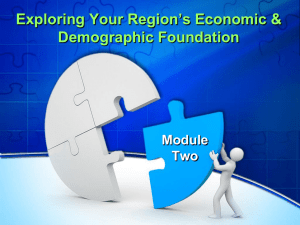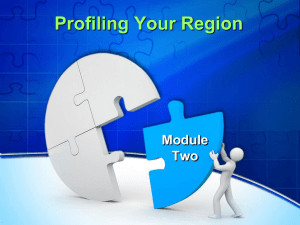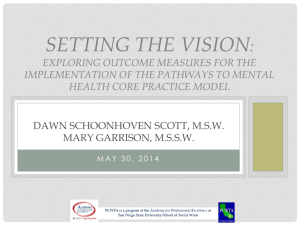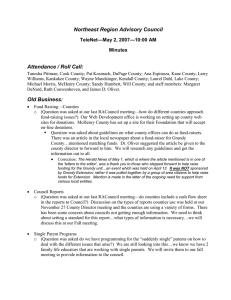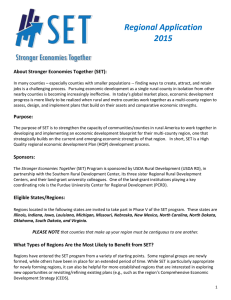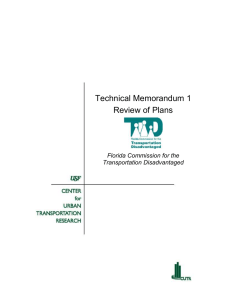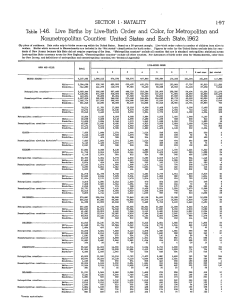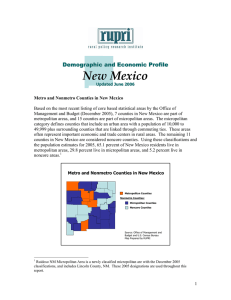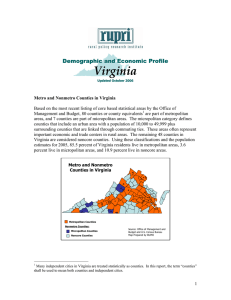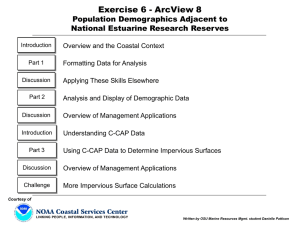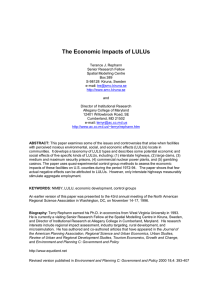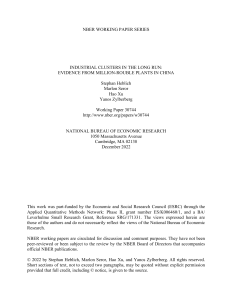Launching SET & Building a Strong Regional Team Module One
advertisement
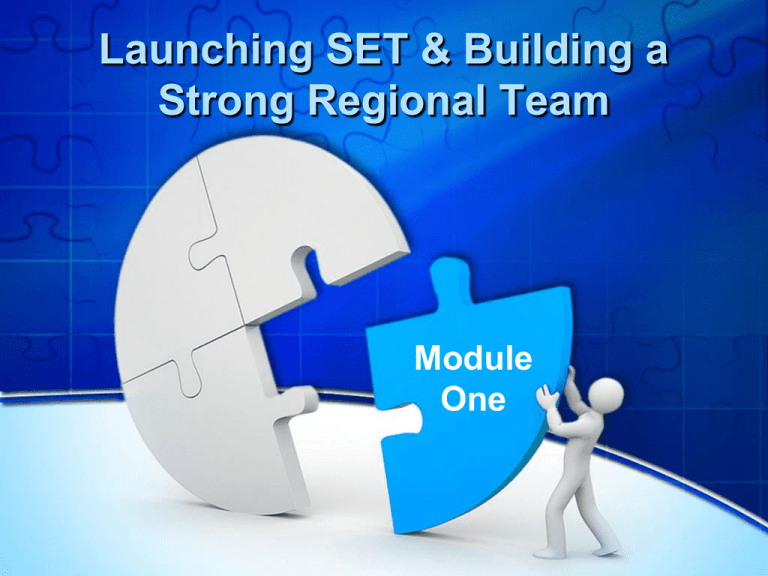
Launching SET & Building a Strong Regional Team Module One The SET Phase IV States: 2 New -- 5 Expanding SET Phase IV Purpose of SET Help rural communities/counties work together as a regional team in developing and implementing A High Quality Regional Economic Development Plan that builds on the current and emerging economic strengths of their region SET Core Process Modules Moving Into Action The Basics Gearing Up Resources & Goals Launching SET & Building a Strong Regional Team Identifying the Region’s Comparative Advantage Defining Your Regional Vision and Goals Planning for Success Exploring Your Region’s Demographics Exploring Potential Regional Strategies Discovering Assets & Barriers Measuring for Success Producing a High Quality Plan: The Essential Components EvidenceBased Aligned with Vision & Goals Practical Team’s Regional Plan Focused on Regional Economic Development Broadly Supported Roles and Responsibilities State Partner Team • State Rural Development & Extension Service Professionals • Other relevant partners (5-7+) • Assists in helping regional teams link to needed resources State Coaching Team • Has strong experience coaching groups • Includes at least one person well versed in interpreting and explaining technical economic data • Coaches the SET region toward their plan • Helps with the High Quality Plan development process In This Session We Will: • Define the region • Examine benefits and barriers to building this regional partnership • Deliverable: Generate a list of essential partners • Deliverable: Develop a call to action • HQP: Draft a plan for involving stakeholders DEFINING A REGION: DIFFERENT APPROACHES Regions Can be Defined Using Different Lenses SET Focuses on Economic Regions • SET begins with a group of geographically linked counties that want to work and think regionally. • SET’s main focus is connecting counties that are economically linked through economic clusters. Your Region • Insert a map or list of your region’s counties. Building Your Team Invite People to the Team that: • • • • • • • Can influence success Have necessary skills Have resources Are respected leaders Will encourage buy-in Represent emerging industry sectors Represent diverse populations Source: Know Your Region Who Should be at the Table? Business & Industry Local Residents Regional Team Members Nonprofit, Voluntary & FaithBased Groups Local, Regional Government Education Who Else Should You Invite? Name of Team Member Major Sector/Interest Area the Person Represents Example: Joanne Smith Business (Banker) Example: Dr. Barbara Jones Education (Comm. College President) BUILDING REGIONAL NETWORKS & COLLABORATIVES Collaboration Math The whole is greater than the sum of the parts. Building Toward Collaboration Cooperating Trust Effectiveness Collaborating Coordinating Networking Green Light/Red Light • Organizations to which you currently belong • Organizations of which you once were a member Why I Stayed and Why I Left What Can We Learn? How can we apply these lessons to our partnership? Creating a Win-Win Partnership Existing SET Team What can the current team learn or gain from their involvement? What can the new partners learn or gain from their involvement? New Partners 21 Call to Action: Basic Principles • Describe purpose • Provide reason for participation • Identify timeline • Explain intended outcomes Source: Know Your Region Looking Ahead . . . In Module Two, we will: • Explore the implications of the region’s demographic structure • Draft the demographics section of the High Quality Plan Preparing for Module Two Final Thoughts • Anything need clarification? • Other questions about SET? • SET contact persons: Extension Service: State USDA RD:
